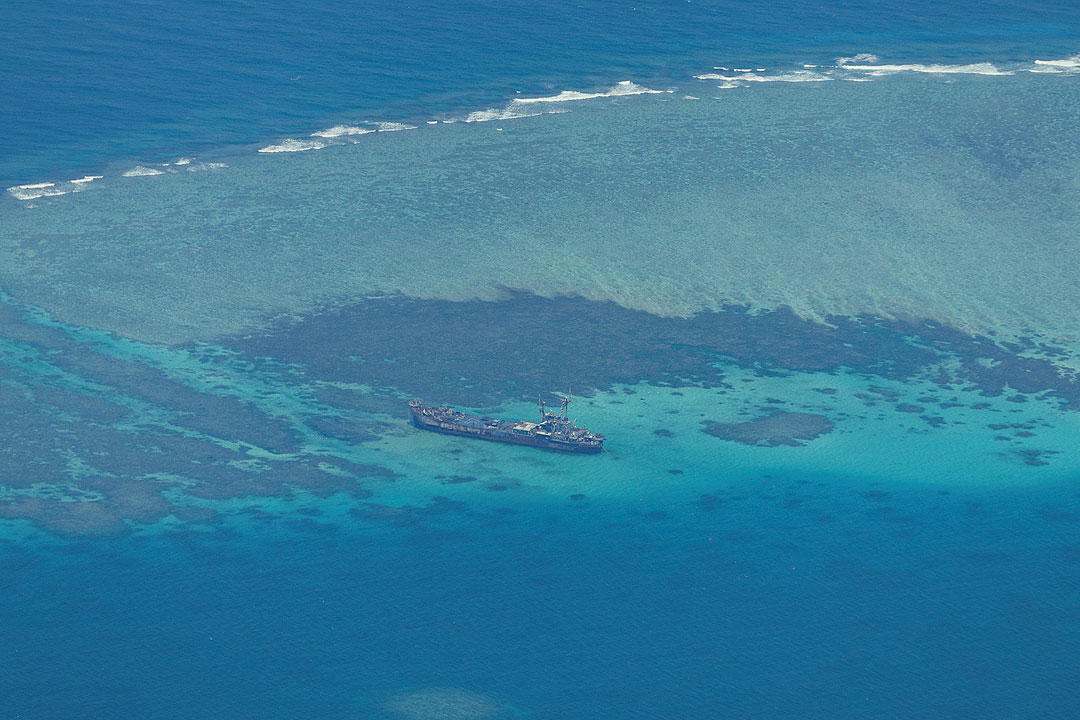Philippines’ maritime defense plan unclear — analyst

By Beatriz Marie D. Cruz, Reporter
PHILIPPINE defense agencies, not Congress, should be the ones planning for the country’s security especially in the context of worsening ties with China, a political analyst said, as he cited sparse details about the game plan.
“The fact that it’s a politician talking about defense and not the actual military leadership involved in the action raises additional questions as to whether they know what they’re doing,” Hansley A. Juliano, a political science professor at the Ateneo De Manila University, said in a Facebook Messenger chat.
“Armed Forces Chief of Staff Romeo S. Brawner, Jr. should be the one talking, not Speaker Ferdinand Martin G. Romualdez,” he added.
Mr. Juliano said there seems to be no detailed plans about how to protect Philippine interests in the South China Sea. “This requires the input of the defense services, as well as the security policy sector that engages with them including think tanks, universities and civil society organizations involved with affected communities.”
He also said he was “deeply concerned” about the lack of transparency in the funding of defense projects.
“The political leaders of this regime seem deeply invested in being given monies outside public scrutiny when their intentions toward malversation of funds are so transparent,” he said. “It’s a red flag for me that the administration allies seem consistent in their angle of justification: ‘We have an external/internal threat so give us the public Treasury and don’t question what we do.’”
Military spokesman Enrico Gil Ileto did not immediately reply to a Viber message seeking comment.
Mr. Romualdez earlier said Congress would allot P3 billion to develop Philippine-claimed islands in the South China Sea.
“We want to invest more of the resources because of the strategic importance and value it brings to all of us,” he told reporters on Oct. 5.
Congress might also increase the budget of the Public Works department so it could build infrastructure on these islands, he said.
Lawmakers would also consider giving solar-powered shelters and cold storage facilities to residents of Thitu Island, a Philippine-occupied territory in the Spratlys that it calls Pag-asa.
The House leader said the runway at Thitu Island could be extended by 500 meters to accommodate larger aircraft, as well as widen the opposite area to serve as shelter for fishing vessels during bad weather.
China should not worry about the Philippine government’s development projects in its territories in the South China Sea since it has “no intention of militarizing the islands,” said Chester B. Cabalza, founding president of Manila-based International Development and Security Cooperation.
“The cost may be small for infrastructure projects,” he said in a Messenger chat. “However, this is a better start than nothing. Hopefully, more projects will be offered to the communities in the West Philippine Sea.”
A United Nations-backed tribunal in 2016 voided China’s claim to more than 80% of the South China Sea based on a 1940s map.
The Philippines has been unable to enforce the ruling and has since filed hundreds of protests over what it calls encroachment and harassment by China’s coast guard and its vast fishing fleet.
China’s expansive claims overlap with the exclusive economic zones of Vietnam, Malaysia, Brunei, Indonesia and the Philippines.



